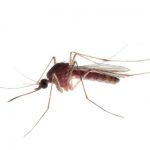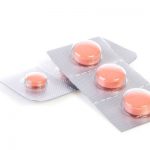Doxycycline tablets
Doxycycline is an antibiotic used to prevent malaria. It is suitable to protect against malaria many countries and needs to be taken daily, from two days before entering until four weeks after leaving a malaria area.
About the medication
When to start the course: You need to start taking doxycycline 2 days before you enter a malaria area.
- Dosage: The standard dose for malaria prevention is a 100mg dose of doxycycline per day.
- How to take: Take a 100mg tablet every day. You need to continue taking the tablets until 4 weeks after your return.
- Who can take it:A nurse or pharmacist needs to assess whether doxycycline is suitable for you. Doxycycline is not suitable for pregnant or breastfeeding women and children under the age of 12.
- During your course: Doxycycline can increase your sensitivity to sunlight. Avoid direct sunlight and use sunscreen.
- Additional precautions: In addition to taking your antimalarial as prescribed you need to practise insect bite avoidance.
- Side effects: Doxycycline can cause side effects in some patients. Possible side effects include feeling or being sick, thrush, indigestion and an increased sensitivity to sunlight.
Prices
| Per Dose | £0.65 per capsule |
| Price per course | £0.65 per capsule |
| Course | Depends on duration of travel |
| Pack size | Differs between brands |
| Price | £0.65 per capsule |
How it Works
Attend your consultation
Get your treatment
Frequently Asked Question
Doxycycline for malaria prevention
You need to start taking doxycycline two days before you enter an area where malaria is endemic. You need to continue taking it throughout your trip for as long as you’re at risk of catching malaria and for four weeks after your return.
The malaria parasite can take some time to multiply and cause symptoms – it is important that you finish the full course you have been prescribed to ensure that you are fully protected.
While taking doxycycline, you should avoid drinking alcohol as it could reduce the effectiveness of your medication and increase your risk of catching malaria.
In addition to taking your tablets, make sure you practise insect bite avoidance by using insect repellent and a mosquito net.
If you experience malaria symptoms at any point during or after your trip, seek medical help without delay. Antimalarials are very effective when taken correctly but a very small risk of infection remains.
How to take doxycycline
Take your daily dose with a drink of water, ideally at the same time every day. Don’t lie down for half an hour after taking the tablet as this will reduce your risk of side effects such as nausea and an upset stomach.
If you have forgotten to take one dose, take it as soon as possible and then continue by taking the next tablet at the correct time. Don’t take a double dose to make up for the one you have missed.
Who can take it?
When you visit one of our clinics, the nurse or pharmacist will assess which antimalarial is best for you. They will take into account your medical history and where you are travelling to as well as your preference.
Doxycycline may not be suitable for you if you are pregnant or trying for a baby. It is also not suitable for women who are breastfeeding and children under the age of 12.
If you have had an allergic reaction to doxycycline or a similar antibiotic in the past, you will need to use a different antimalarial. The same may apply if you suffer from certain medical conditions, for example kidney or liver problems, lupus or porphyria. You may also be unable to take doxycycline if you are taking any medications that interact with it.
In some cases, doxycycline has been found to increase your sensitivity to sunlight and to increase your risk of sunburn. If you are likely to be exposed to direct sunlight for long periods of time, the nurse or pharmacist may recommend a different antimalarial.
Side effects
As other antimalarials, doxycycline can cause side effects in some patients.
Allergic reactions to doxycycline are very rare but can be serious.
Symptoms of an allergic reaction include:
- Wheezing and difficulty breathing
- Chest pain
- Swellings
- Rash or itching
See a doctor immediately if you experience symptoms of an allergic reaction.
Tell your doctor as soon as possible if you experience any of the following:
- Severe skin reactions
- Sensitivity to sunlight
- Headache
- Visual disturbances
- Fever and cramps
- Severe and / or bloody diarrhoea
- Low blood pressure
- Muscle or joint pain
- Palpitations
- Fainting
- Jaundice and liver problems
For a full list of all possible side effects, please read the patient leaflet supplied with your medication.



